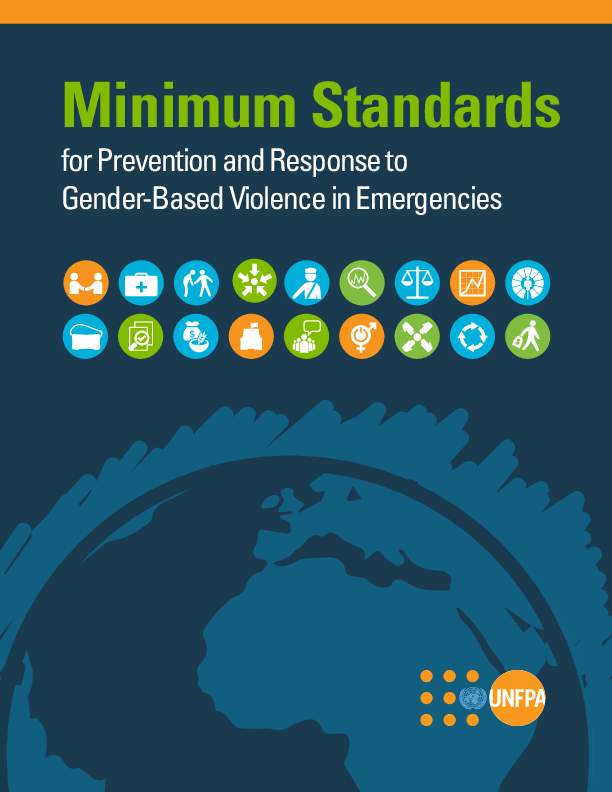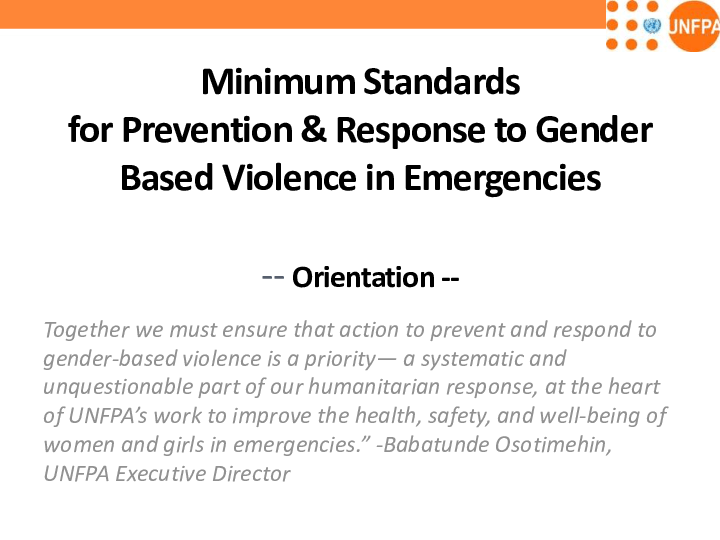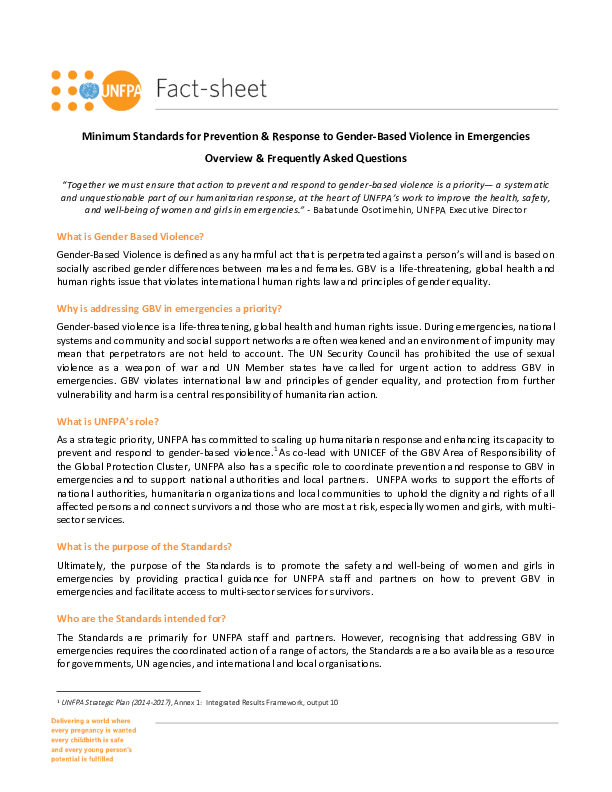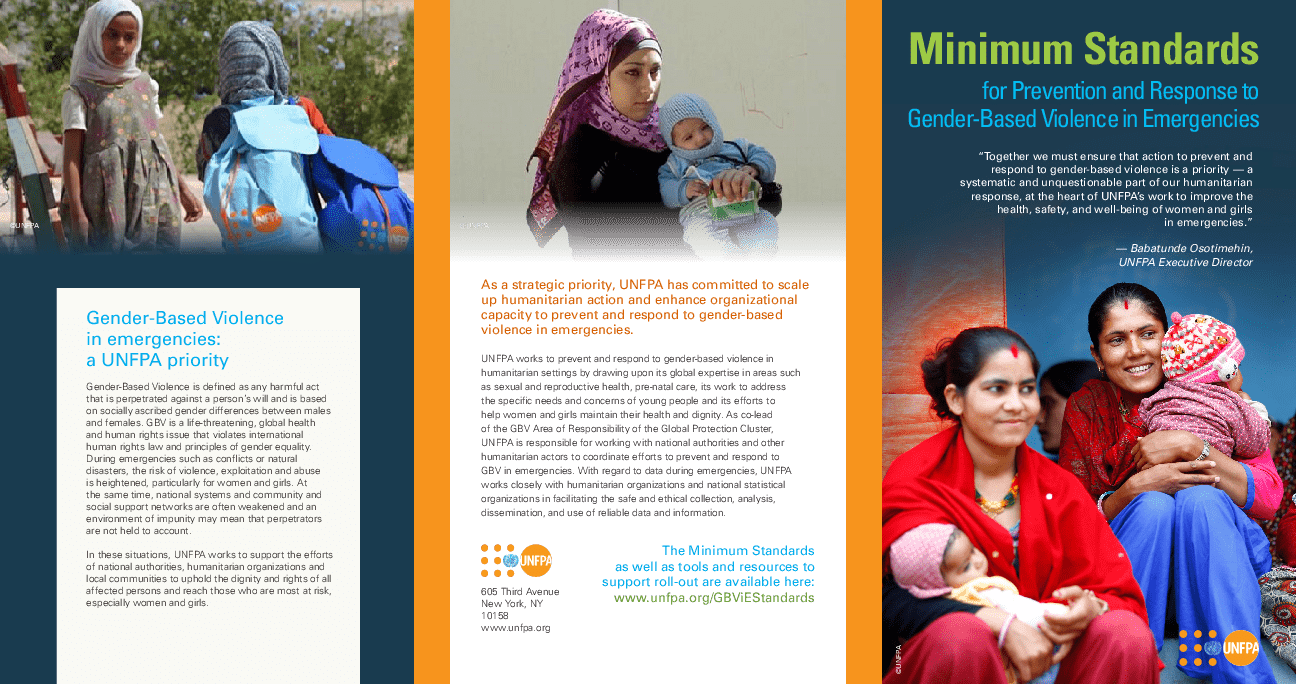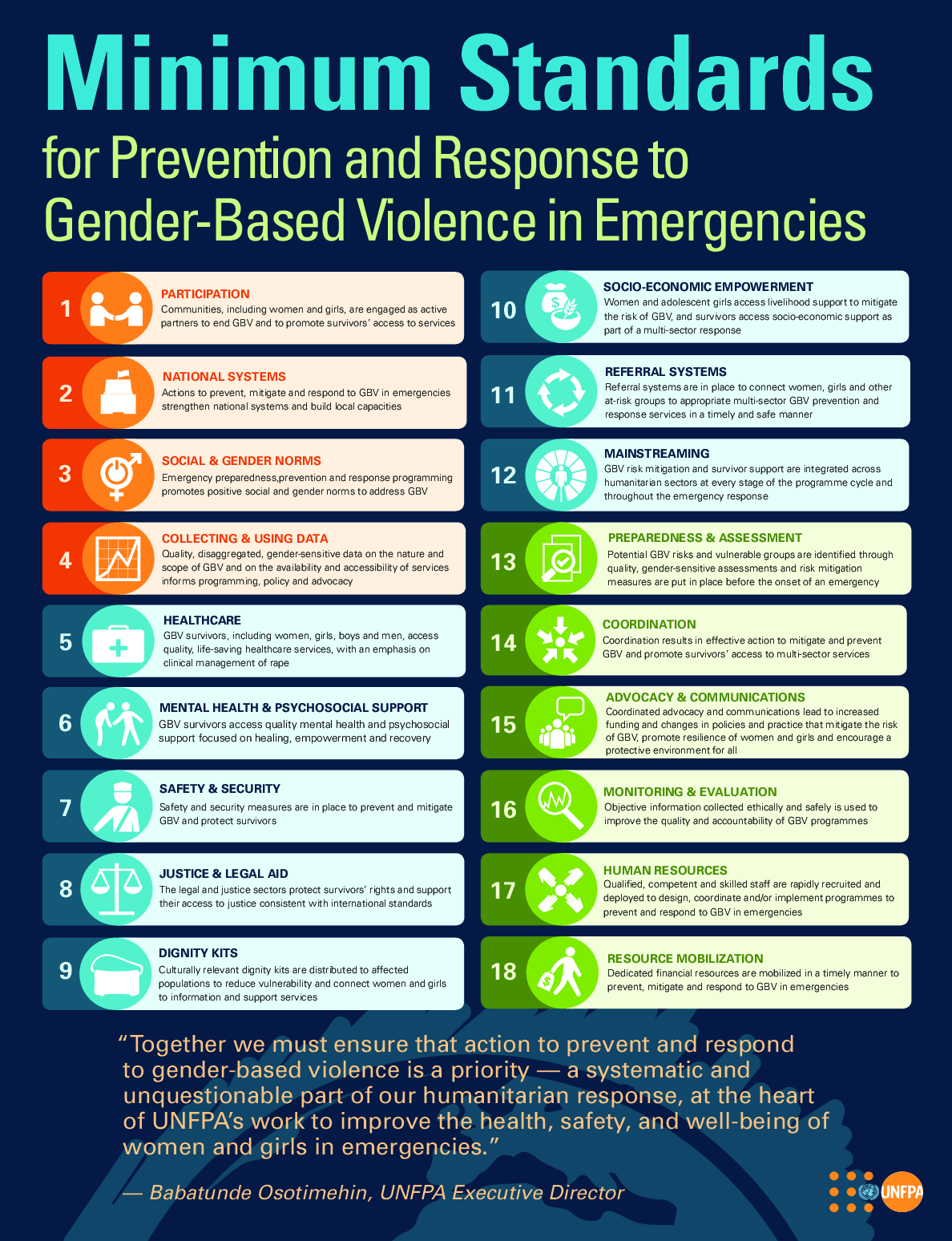GBViE Standards
Publication date: 2015-11-23
Author: UNFPA
Publisher: UNFPA
Gender based violence is a life-threatening, global health and human rights issue that violates international human rights law and principles of gender equality. In emergencies, such as conflict or natural disasters, the risk of violence, exploitation and abuse is heightened, particularly for women and girls. UNFPA’s “Minimum Standards for Prevention and Response to GBV in Emergencies (GBViE)” promote the safety and well being of women and girls in emergencies and provide practical guidance on how to mitigate and prevent gender-based violence in emergencies and facilitate access to multi-sector services for survivors.
|
MINIMUM STANDARDS FOR PREVENTION & REPONSE TO GBV IN EMERGENCIES
|
||
|---|---|---|
| Foundational Standards | Prevention & Response | Operational |
| Participation | Healthcare | Preparedness & Assessment |
| National Systems | Mental Health & Psychosocial Support | Coordination |
| Positive Social & Gender Norms | Safety & Security | Advocacy & Communications |
| Data Collection & Use | Justice & Legal Aid | Monitoring & Evaluation |
| Dignity Kits | Human Resources | |
| Socio-economic Empowerment | Resource Mobilization | |
| Referral Systems | ||
| Mainstreaming | ||
18 minimum standards
18 MINIMUM STANDARDS
 |
Participation: Communities, including women and girls, must be engaged as active partners to end GBV and to promote survivors’ access to services. |
 |
National Systems: Actions to prevent, mitigate and respond to GBV in emergencies strengthen national systems and build local capacities. |
 |
Positive Gender & Social Norms: Preparedness, prevention and response programming promotes positive social and gender norms to address GBV. |
 |
Collecting & Using Data: Quality, disaggregated, gender sensitive data on the nature and scope of GBV and on the availability and accessibility of services informs programming decisions, policy dialogue and advocacy. |
 |
Healthcare: GBV survivors, including women, men, girls and boys, access quality, life-saving healthcare services, specifically clinical management of rape (CMR). |
 |
Mental Health & Psychosocial Support: GBV survivors have safe access to quality mental health and psychosocial support focused on healing, empowerment and recovery. |
 |
Safety & Security: Safety and security measures are in place to prevent and mitigate gender based violence and protect survivors. |
 |
Dignity Kits: Culturally relevant dignity kits distributed to affected populations to reduce vulnerability and connect women and girls to information and support services. |
 |
Justice & Legal Aid: The legal and justice sectors protect survivors’ rights and support their access to justice consistent with international standards. |
 |
Socio-Economic Empowerment: Women and adolescent girls access livelihood support to mitigate the risk of GBV, and survivors access socio-economic support as part of a multi-sector response. |
 |
Referral Systems: Referral systems are established to connect women, girls and other at-risk groups to appropriate multi-sector GBV prevention and response services in a timely and safe manner. |
 |
Mainstreaming: GBV risk mitigation and survivor support are integrated across humanitarian sectors at every stage of the programme cycle and throughout the emergency response. |
 |
Preparedness & Assessment: Potential GBV risks and vulnerable groups are identified through quality gender sensitive assessments and risk mitigation measures are put in place before the onset of an emergency. |
 |
Coordination: Coordination results in effective action to protect women and girls, boys and men, mitigate and prevent gender-based violence, and promote survivors’ access to multi-sector services. |
 |
Advocacy & Communication: Coordinated advocacy and communication leads to increased funding and changes in policies and practice that mitigate the risk of GBV, promote resilience of women and girls, and encourage a protective environment for all. |
 |
Monitoring & Evaluation: Objective information collected ethically and safely, is used to improve the quality and accountability of GBV programs. |
 |
Human Resources: Qualified, competent, skilled staff are rapidly recruited and deployed to design, coordinate and/or implement programmes to prevent and respond to GBV in emergencies. |
 |
Resource Mobilization: Dedicated financial resources are mobilized in a timely manner to prevent, mitigate and respond to GBV in emergencies. |
Video

